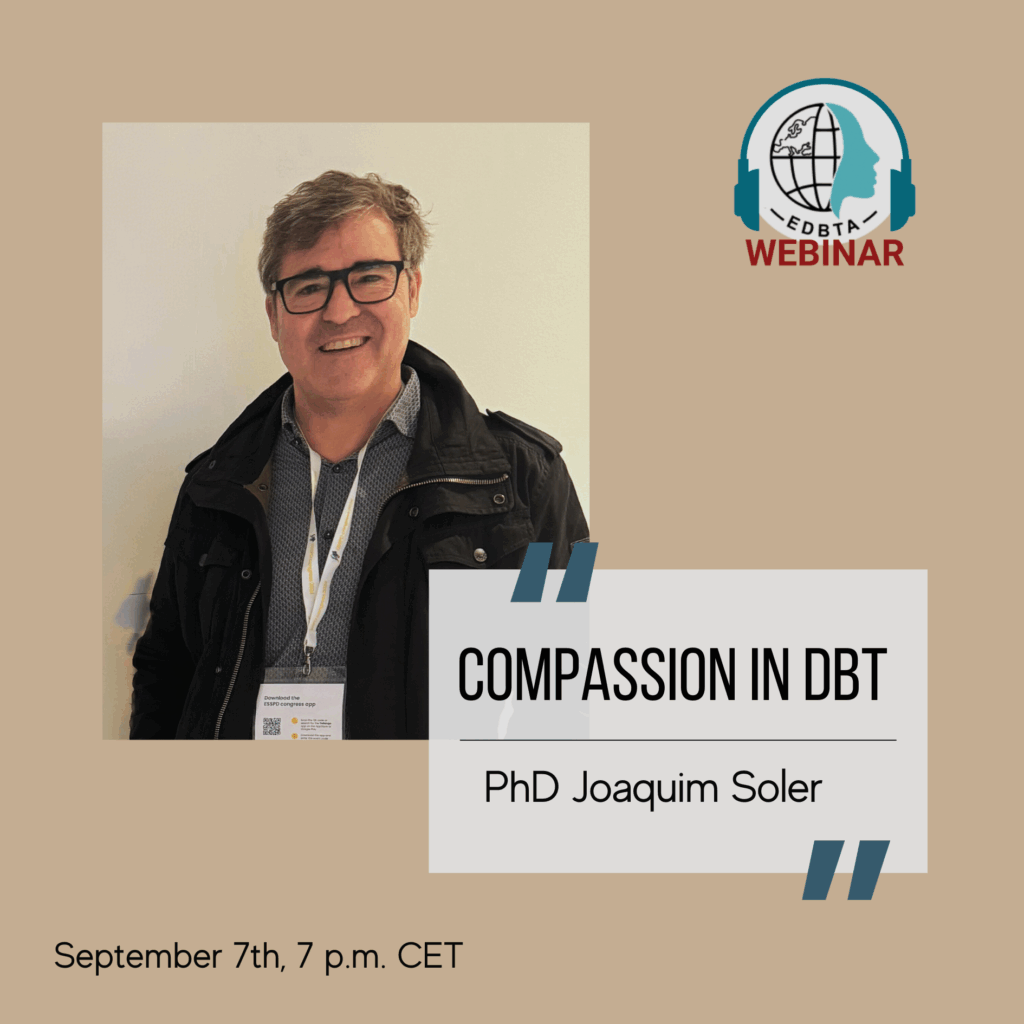About this webinar, Joaquim writes: “I don’t know if most people are aware that one process that has been identified as very relevant in the improvement of people who underwent an 8-week mindfulness-based cognitive therapy treatment is self-compassion. What’s surprising is that MBCT does not explicitly include any session, materials, or meditations focused on compassion. So, where does the increase in self-compassion come from?
Probably because it is implicit, embedded as a foundational attitude in the instructors’ interactions with participants. I believe something similar happens in DBT. However, we also know that when compassion is taught explicitly – as in Compassion Focused Therapy – it effects can be even stronger.
This is my goal: to expand and make explicit something that is already present in DBT. We already did this with dialectical thinking, which was once only modeled by therapists but is now an explicit theme in the Middle Path module. Patients can now learn to apply dialectical thinking directly, rather than simply absorbing it through observation.
In addition, self-criticism and self-invalidation are terms that, without having the same meaning, have a lot of overlap. The inclusion of loving-kindness and compassion training in the skills training program for BPD would aim to decrease self-invalidation and achieve an additional skill to acceptance in coping with pain or promoting positive emotions.
Notice that a wise mind driven action could not be really “wise” without compassion, and some other skills, such the encouragement skill or the practice of contribution are also driven by it. Additionally, in the revised version of skills manual, loving-kindness meditations have been added in some expanded versions of the mindfulness module. While elements of compassion are already present in DBT many people with BPD struggle with self-compassion. For this reason, a more explicit and structured focus may be necessary to help them develop this powerful skill, which could ultimately enhance treatment outcomes.”
